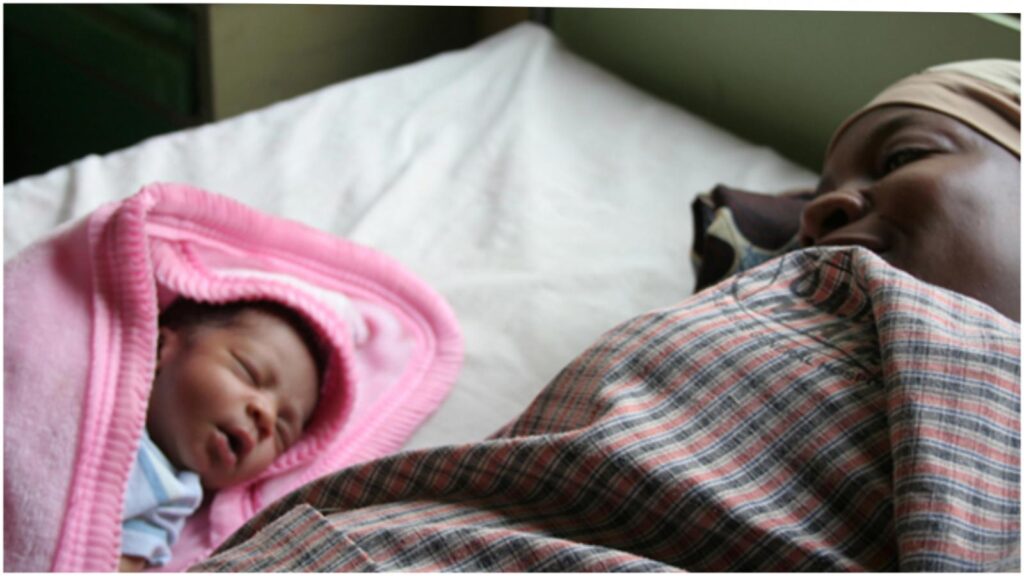
The Rotary Action Group for Reproductive, Maternal, Health (Rotary-RMCH) has launched a series of initiatives aimed at improving maternal and neonatal healthcare in Nigeria and reducing mortality related to them by 25 per cent.
The initiative’s goal is to reduce maternal and neonatal mortality by 25 per cent.
Programme manager of Together for Healthy Families in Nigeria, Mr. Toyosi Adebambo made this known during a journalists’ workshop held on Tuesday in Abuja as part of a three-year programme titled “Together for Healthy Families in Nigeria.”
Adebambo quoted World Health Organisation (WHO) statistics indicating that approximately 295,000 women worldwide die each year from pregnancy and childbirth complications, with the majority occurring in low- and middle-income countries.
He explained that around 5.2 million children under the age of five die annually, with Sub-Saharan Africa and South Asia experiencing the highest rates.
“Neonatal deaths alone account for 47 per cent of these deaths,” he stated, stressing the critical need for targeted interventions in these regions.
He added, “Nigeria has one of the highest maternal mortality rates in the world, with an estimated 512 maternal deaths per 100,000 live births.
“This stark statistic underscores the urgency of the Rotary group’s initiatives to train healthcare workers and journalists on respectful maternal and child care and to provide essential medical supplies.”
He said that the project seeks to reduce maternal and infant morbidity and mortality, and in order to achieve this: “The programmes of scale plans to reduce the death of women and newborns by 25 per cent due to pregnancy-related complications in the target areas—FCT, Nasarawa, Gombe and Ekiti states (2 LGAs each and 1 LGA in the FCT).
“Additionally, we aim to reduce the death of women due to complications of too early, frequent, or too late pregnancies, and to ensure fewer women and newborns die due to poor structure, process and outcome of care at health facilities.
“This will be done by strengthening the use of the digital maternal and prenatal child death surveillance and response (MPCDSR) platform, which will inform stakeholders where and in what areas investment is most needed,” he said.
Reproductive health coordinator at the FCT Primary Healthcare Board, Mrs Memuna Mikail said that the importance of investing in prenatal, antenatal and postnatal care to reduce mortality rates.
Mikail said the necessity of comprehensive maternal healthcare services to improve outcomes for mothers and newborns.
She also advocated for family planning, stating that it was a crucial strategy for preventing poverty and improving overall health outcomes.
“In the survival of persons in this country, beyond saving lives, we also have to reduce poverty,” she said.
Head of health promotion division, Federal Ministry of Health, Barr. Nma Ogbonna stressed the need for sensitising and empowering women on their health rights and responsibilities for better decision-making.
“Empowering individuals to make informed decisions advocated for change, bringing attention to health disparities and advocating for policies that support better health outcomes for mothers and children.
“Bringing attention to health disparities and advocating for policies that support better health outcomes for mothers and children, mobilised communities, encouraging community participation in health programmes and initiatives.”
Ogbonna stressed on health disparities and advocated for supportive policies that can lead to significant improvements in maternal and child health in the country.
She called for community mobilization and participation in health programme and initiatives to ensure widespread impact.
Director of the Safe Motherhood Division at the Family Health Department, FMOH, Dr Samuel Oyeniyi encouraged stakeholders to maintain their continuous support for combating maternal and neonatal mortality.
Oyeniyi lauded the Rotary Action Group for Reproductive, Maternal, Health (Rotary-RMCH) for their significant contributions to this effort.
He stressed on the organisation’s role in reducing mortality rates and reaffirmed the ministry’s commitment to supporting their initiatives.
“Rotary has been very supportive in reducing mortality, and we are ready to support them,” he said.
Science Nigeria reports that the Rotary group’s initiatives aim to create sustainable improvements in maternal and neonatal health through training, resource provision and community engagement.
“By addressing the root causes of high mortality rates, they hope to make a lasting impact on health outcomes in Nigeria.
“As the programme progresses, it will focus on training healthcare providers, increasing access to essential supplies, and empowering communities to take an active role in health promotion.
“These efforts are expected to significantly reduce the burden of maternal and neonatal mortality in the country,” he said.
The ‘Together for Healthy Families in Nigeria’ programme represents a collaborative effort to address one of Nigeria’s most pressing health challenges.
Through partnerships and sustained commitment, the Rotary-RMNCH+N aims to create a healthier future for mothers and children across the nation.
Rotary-RMCH is currently implementing a three-year programme of scale tagged- “Together for healthy families in Nigeria.” The goal of this initiative is not only ambitious but also crucial for the well-being of mothers and newborns in Nigeria.
By focusing on targeted interventions, training healthcare workers, and leveraging digital platforms for better surveillance and response, the Rotary Action Group for Reproductive, Maternal Health is stepping up to make a tangible difference in reducing maternal and neonatal mortality rates. Through collaborative efforts, community engagement and sustained commitment, they are paving the way for a healthier future for families across the nation. This comprehensive approach to addressing the root causes of high mortality rates is poised to bring about sustainable improvements in maternal and neonatal health outcomes, marking a significant stride towards achieving better healthcare for all in Nigeria.


